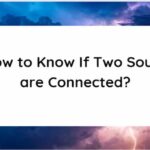
As a parent, it’s natural to want to give your children everything. However, it’s equally important to teach them how to fend for themselves, and this can be difficult if your children are constantly depending on you. In this blog post, we’ll explore 7 signs of emotional abuse from parents, and give you some tips on how to prevent it from happening to your children.
Have you been emotionally abused by your parent?
Emotional abuse often continues into adulthood, and can affect your relationships, self-esteem, and ability to work. It can result in depression, anxiety, and post-traumatic stress disorder. It can lead to suicidal thoughts and actions.
Emotional abuse can be difficult to recognize. It is different from other types of abuse because it affects your attitude and emotional well-being, rather than your physical body. It is not always obvious when someone is emotionally abusing you. Here are some common signs of emotional abuse:
**Emotional abuse can come from anyone:** The abuser may be a friend, relative, or significant other. The abuser does not have to be a parent. Emotional abuse can happen to anyone, including children.
**It affects both adults and children:** Emotional abuse happens to all types of people, regardless of age. It can affect anyone, from teenagers to senior citizens. Children and teenagers are affected by emotional abuse at about the same rate as adults.
**It can cause long-term problems:** Emotional abuse has long-term consequences. It can lead to anxiety, depression, and post-traumatic stress disorder. It can lead to suicidal thoughts and actions.
**It increases your risk of substance abuse:** Emotional abuse can trigger feelings of low self-esteem, fear, anger, and frustration. These feelings can trigger a need to use drugs or alcohol to reduce these feelings.
**It can interfere with your success in school:** Emotional abuse disrupts your schoolwork and causes you to become depressed or anxious.
**It can cause you to withdraw from friends and family:** Emotional abuse can affect your relationships with others. You may begin to avoid certain people or spend time with fewer people. You may also withdraw from family or lifelong friends.
**It can cause health problems:** Emotional abuse can trigger delayed physical responses and mental health conditions. These conditions often develop in adulthood, several years after emotional abuse has occurred.
1. They were always moody and irritable.
This woman lived with her parents all her life. Her mom and dad were very kind and nice to her. However, they were always moody and irritable. She got stressed and upset whenever they got upset with her. They were always telling her that she doesn’t do anything right. She felt like a failure. She was always told that she is not good enough.
She could never do anything right, and she kept failing in her academia. She kept failing in her school assignments, work, and her everyday life. She felt like such a loser and a failure. She couldn’t do anything right. She was always made to feel bad about herself.
2. They were always critical of you.
No one should ever be critical over anything. It is never important to criticize your kid’s appearance or the way they dress.
Parents should not criticize their kids for playing the kind of games they like.
You should never be critical of the way your kids eat their food. Also, one should never criticize them when they have eaten.
One should never leave any negative remarks on their kid’s clothes. They should not discuss anything bad with their kid’s friends.
One should never use a critical tone or voice. Always be friendly and courteous. You should never criticize your kid in public.
Never criticize your kid’s belongings. They should never criticize your kid’s toys or books.
Also, one should not criticize your kid’s driving skills.
You should never become critical of anything your kid does. For example, never criticize the way your kid studies. They should never criticize you for the way you clean the house.
You should never criticize your kid to their friends.
Never criticize your kid’s friends. One should not criticize their kids on the way they speak.
One should always be respectful of other parents. Never ever badmouth your children’s friends.
3. They ignored and invalidated your emotions.
Emotional abusers are usually very skilled at hiding their abusive behavior. This can make it hard for you to realize what is happening. If you’ve been in a relationship with someone who emotionally abuses you, there’s a good chance that you have had more than one experience like this – and you probably didn’t even realize it.
Emotional abuse is never okay. It disregards your feelings and invalidates your emotions. Emotional abusers often paint themselves as victims of their own behavior; they convince their victims that the abuse has nothing to do with them.
It can be difficult to spot emotional abuse, but it’s never okay. If your partner is abusing you emotionally, you should seek help. Ignoring emotional abuse will only hurt you in the long run.
4. They were unable to handle their own lives and asked for your help.
“I grew up during a time when people didn’t talk about problems with their parents. Now, it’s different. Kids who are abused need to talk to somebody. They need people to tell them it’s wrong.”
Once, it was shameful to admit you were being abused. Today, it’s just the opposite. Most people understand abuse is a problem. But still, it’s difficult for an adult to admit they were abused, and even more difficult to understand, help prevent, and stop abuse in children.
Children who grow up in abusive homes, who are victimized by parents abusing drugs and alcohol, or who are exposed to violence are at risk for being abused. They lack the life skills, safety skills, and self-esteem needed to defend or protect themselves against abusive behavior.
Children who have been abused need special treatment. They may have emotional or behavioral problems, or they may even experience developmental delays. They may show low self-esteem, depression, or an inability to trust others. They may resort to alcohol or drugs, or they may even become violent or abusive themselves.
Children who are victimized need special help. They need therapy to help them deal with their painful past. They need educational classes to help them master the skills they need to lead healthy, happy lives. They need safe, loving homes where they can build self-confidence and self-esteem.
5. They guilt-tripped you.
Emotional abuse can be insidious. It doesn’t leave bruises. It doesn’t leave physical scars. Instead, it strikes right at the core of who you are, shaping your view of yourself and your ability to cope with the world around you.
Emotional abuse is the type of abuse that can keep you up at night, wondering if what you’ve been through is bad enough. While physical abuse leaves bruises and cuts, emotional abuse penetrates much deeper, far below the surface. It can leave you feeling like you’re broken.
6. They subjected you to silent treatment.
Emotional abuse is any behavior that disrupts your ability to feel good about yourself.
Silent treatment is a form of emotional abuse. It happens when you experience a long period where the person you’re with won’t talk to you. They refuse to answer any questions you try to ask them. They don’t respond to messages. They won’t respond to you at all.
Silent treatment can be challenging to deal with. It’s different from being ignored. When you’re ignored, you’re expected to keep trying to talk to your partner. You keep trying to engage with them. Silent treatment is different.
Silent treatment makes leaving seem impossible. It tells you that you have nowhere to go.
It’s tempting to think you’re being ignored, when it’s the silence that’s the problem. When you’re in silent treatment, you’re never ignored. Your partner may be giving you lots of attention, but in a way that makes you feel terrible about yourself.
Silent treatment can be extremely destructive. It eats away at your self-esteem. It makes you feel rejected, like you’re no one.
Some more signs of emotional abuse from parents
1. The abuser minimizes or dismisses the victim’s feelings.
2. The abuser tries to control the victim’s thoughts and emotions.
3. The abuser restricts the victim’s movements.
4. The abuser makes the victim feel like they are worthless.
5. The abuser emotionally abuses the victim in public.
Final thoughts on an emotionally abusive parent
While this article has covered many of the warning signs of an abusive parent, you should be aware that there is no magic list of clues. Many emotionally abusive parents appear perfectly normal to the outside world. Therefore, it is possible for a parent to abuse his or her child without showing any outward signs. The best way to identify an abusive parent is to be vigilant and watch for warning signs that might indicate abusive behavior.
If you suspect that your child is being abused by his or her parent, you should remain calm and seek help. Don’t ignore the signs – they may develop into a larger problem later on.

Hi! I am Olivia, a relationship, manifest, and self-help writer. I believe that with the right tools and mindset, anyone can improve their relationships, manifest their desires, and find inner peace and fulfillment. My writing aims to provide practical tips and strategies for personal growth and happiness. Thank you for reading and I hope my words can make a positive impact in your life.








